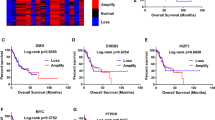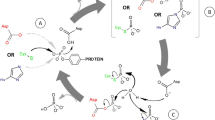Abstract
Protein kinases play key roles in cellular functions. They are involved in many cellular functions including; signal transduction, cell cycle regulation, cell division, and cell differentiation. Alterations of protein kinase by gene amplification, mutation or viral factors often induce tumor formation and tumor progression toward malignancy. The identification and cloning of kinase genes can provide a better understanding of the mechanisms of tumorigenesis as well as diagnostic tools for tumor staging. In this study, we have used degenerated polymerase-chain-reaction primers according to the consensus catalytic domain motifs to amplify protein kinase genes (protein-tyrosine kinase, PTK, and protein-serine/threonine kinase, PSK) from human stomach cancer cells. Following amplification, the protein kinase molecules expressed in the gastric cancer cells were cloned into plasmid vectors for cloning and sequencing. Sequence analysis of polymerase-chain-reaction products resulted in the identification of 25 protein kinases, including two novel ones. Expression of several relevant PTK/PSK genes in gastric cancer cells and tissues was further substantiated by RT-PCR using gene-specific primers. The identification of protein kinases expressed or activated in the gastric cancer cells provide the framework to understand the oncogenic process of stomach cancer.
Similar content being viewed by others
References
Alves F, Vogel W, Mossie K, Millauer B, Hofler H, Ullrich A. Distinct structural characteristics of discoidin I subfamily receptor tyrosine kinases and complementary expression in human cancer. Oncogene 10:609–618;1995.
Cantley LC, Auger KR, Carpenter C, Duckworth B, Graziani A, Kapeller R, Soltoff S. Oncogenes and signal transduction. Cell 64:281–302;1991.
Chang CM, Shu HK, Kung HJ. Disease specificity of kinase domains: The src-encoded catalytic domain converts erbB into a sarcoma oncogene. Proc Natl Acad Sci USA 92:3928–3932;1995.
Edelman AM, Blumenthal DK, Krebs EG. Protein serine/threonine kinases. Annu Rev Biochem 56:567–613;1987.
Hanks SK. Homology probing: identification of cDNA clones encoding members of the protein-serine kinase family. Proc Natl Acad Sci USA 84:388–392;1987.
Hanks SK, Hunter T. The eukaryotic protein kinase superfamily. In: Hardie G, Hanks S, eds. The Protein Kinase Facts Book. San Diego, Academic Press, I:7–47;1995.
Hanks SK, Quinn AM, Hunter T. The protein kinase family conserved features and deduced phylogeny of the catalytic domains. Science 241:42–52;1988.
Hunter A, Cooper JA. Protein-tyrosine kinases. Annu Rev Biochem 54:897–930;1985.
Hunter T. A thousand and one protein kinases. Cell 50:823–829;1987.
Hunter T. 1001 protein kinases redux-towards 2000. Semin Cell Biol 5:367–376;1994.
Ishii H, Yoshida T, Oh H, Yoshida S, Terada M. A truncated K-k-sam product lacking the distal carboxyl-terminal portion provides a reduced level of autophosphorylation and greater resistance against induction of differentiation. Mol Cell Biol 15:3664–3671;1995.
Itoh H, Hattori Y, Sakamoto H, Ishii H, Kishi T, Sasaki H, Yoshida T, Koono M, Sugimura T, Terada M. Preferential alternative splicing in cancer generates a K-sam messenger RNA with higher transforming activity. Cancer Res 54:3237–3241;1994.
Iwase T, Tanaka M, Suzuki M, Naito Y, Sugimura H, Kino I. Identification of protein-tyrosine kinase genes preferentially expressed in embryo stomach and gastric cancer. Biochem Biophys Res Commun 194:698–705;1993.
Jin LD, Meng CL, Han SH, Ding MJ, Chang TM, Chan TK, Shen KL. A study on production of monoclonal antibodies using SC-M1 cells as immunogen. Med Sci 8:17–25;1987.
Kameda T, Yasui W, Yoshida K, Tsujino T, Nakayama H, Ito M, Ito H, Tahara E. Expression of ERBB2 in human gastric carcinomas: Relationship between p185ERBB2 expression and the gene amplification. Cancer Res 50:8002–8009;1990.
Kuniyasu H, Xasui W, Kitadai Y, Yokozaki H, Ito H, Tahara E. Frequent amplification of c-met gene in scirrhous type stomach cancer. Biochem Biophys Res Commun 189:227–232;1992.
Maniatis T, Fritsch E, Sambrook J. Molecular Cloning: A Laboratory Manual. ed 1. Cold Spring Harbor, Cold Spring Harbor Laboratory, 1982.
Mossie K, Jallal B, Alves F, Sures I, Plowman GD, Ullrich A. Colon carcinoma kinase-4 defines a new subclass of the receptor tyrosine kinase family. Oncogene 11:2179–2184;1995.
Robinson D, He F, Pretlow T, Kung H-J. A tyrosine kinase profile of prostate carcinoma. Proc Natl Acad Sci USA 93:5958–5962;1996.
Schultz SJ, Nigg EA. Identification of 21 novel human protein kinases, including 3 members of a family related to the cell cycle regulator nima ofAspergillus nidulans. Cell Growth Different 4:821–830;1993.
Shimizu Y, Weidmann E, Iwatsuki S, Herberman RB, Whiteside TL. Characterization of human autotumor-reactive T-cell clones obtained from tumor-infiltrating lymphocytes in liver metastasis of gastric carcinoma. Cancer Res 51:6153–6162;1991.
Shu HK, Pelley RJ, Kung HJ. Tissue-specific transformation by epidermal growth factor receptor: A single point mutation within the ATP-binding pocket of the erbB product increases its intrinsic kinase activity and activates its sarcomagenic potential. Proc Natl Acad Sci USA 87:9103–9107;1990.
Takahashi T, Shirasawa T, Miyake K, Yahagi Y, Maruyama N, Kasahara N, Kawamura T, Matsumura O, Mitarai T, Sakai O. Protein tyrosine kinases expressed in glomeruli and cultured glomerular cells: FLT-1 and VEGF expression in renal mesangial cells. Biochem Biophys Res Commun 209:218–226;1995.
Uchino S, Tsuda H, Maruyama K, Kinoshita T, Sasako M, Saito T, Kobayashi M, Hirohashi S. Overexpression of c-erbB-2 protein in gastric cancer. Its correlation with long-term survival of patients. Cancer 72:3179–3184;1993.
Wilks AF. Two putative protein-tyrosine kinases identified by application of the polymerase chain reaction. Proc Natl Acad Sci USA 86:1603–1607;1989.
Wilks AF, Kurban RR, Hovens CM, Ralph SJ. The application of the polymerase chain reaction to cloning members of the protein tyrosine kinase family. Gene 85:67–74;1989.
Wu C-W, Hsieh M-C, Lo S-S, Tsay S-H, Lui W-Y, P'eng F-K. Relation of number of positive lymph nodes to the prognosis of patients with primary gastric adenocarcinoma. Gut 38:525–527;1996.
Wu C-W, Wang S-R, Chien S-L, Yeh T-H, Lian S-L, Shimizu N, Lui W-Y, P'eng F-K, Chi C-W. Regulation of arginase production by glucocorticoid in three human gastric cancer cell lines. Life Sci 51:1355–1361;1992.
Yokota J, Yamamoto T, Miyajima N, Toyoshima K, Nomura N, Sakamoto H, Yoshida T, Terada M, Sugimura T. Genetic alterations of the c-erbB-2 oncogene occur frequently in tubular adenocarcinoma of the stomach and are often accompanied by amplification of the v-erb A homologue. Oncogene 2:283–287;1988.
Author information
Authors and Affiliations
Rights and permissions
About this article
Cite this article
Lin, JS., Lu, CW., Huang, CJ. et al. Protein-tyrosine kinase and protein-serine/threonine kinase expression in human gastric cancer cell lines. J Biomed Sci 5, 101–110 (1998). https://doi.org/10.1007/BF02258363
Issue Date:
DOI: https://doi.org/10.1007/BF02258363




